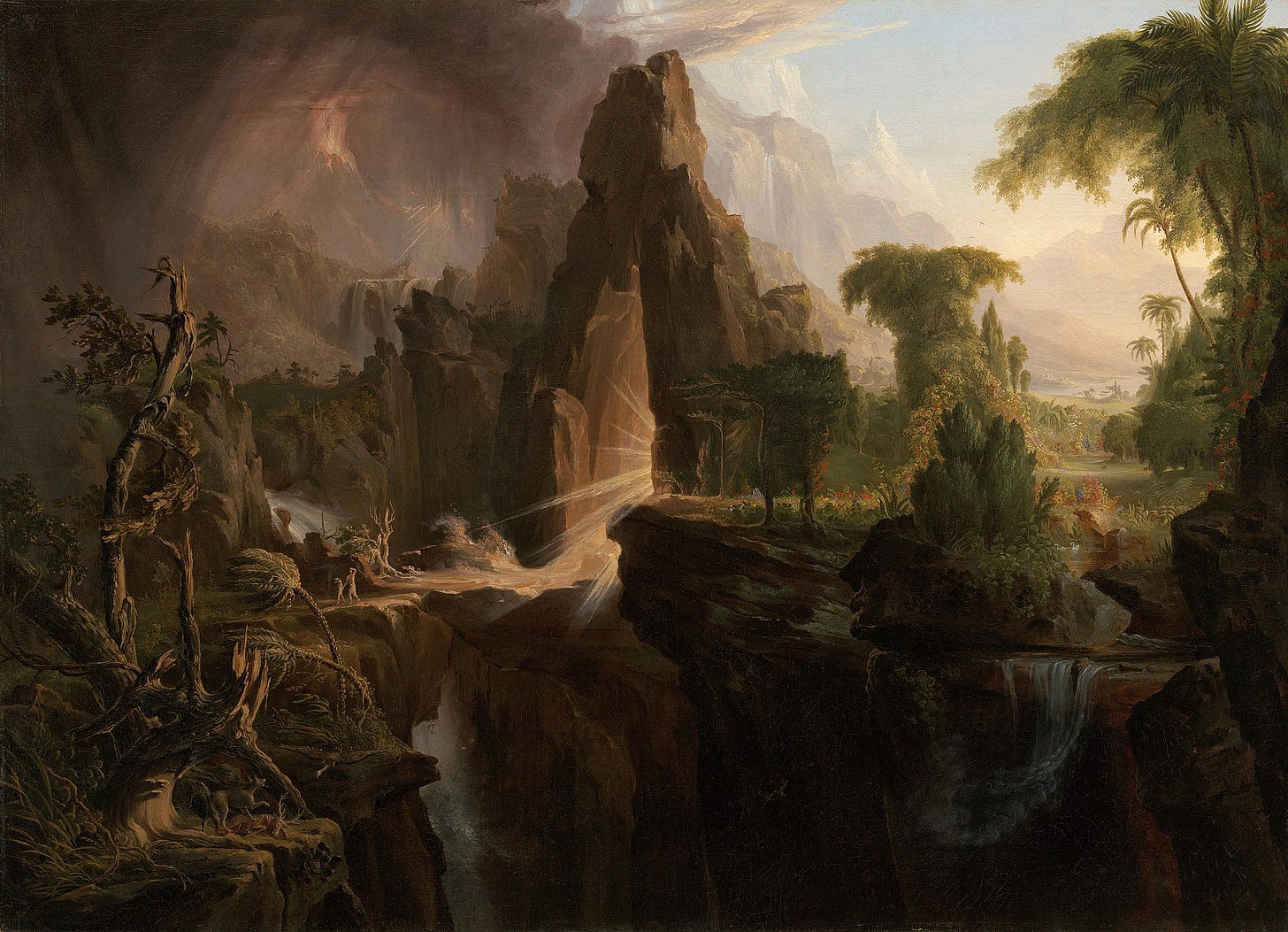When I met Scott I was on shaky ground. Fresh from a bad college romance and other griefs, I was walking toward goodness, but I was unsteady on my feet. When this tall, auburn-haired stranger with his steadfast gaze offered me a ride home on his motorcycle and subsequently invited me to dinner, I had no idea how to be happy. But I knew he made everybody around him laugh. Later when he took me hiking on our third date and I was so nervous I tripped over the rocks (multiple times), he reached for my hand to steady me—and he hasn’t let go since.
I have a friend who comments that in marriage one spouse often makes the other happy, while one makes the other good. Happy and good. Duty and desire. Although this is too simplistic to be syllogistic, there’s truth in it. Marriage is the uniting of two divided souls. I know too much about marriage to believe it is the solution to the problem of my divided self, but I do see how it is an icon of wholeness. Marriage is the union of duty and desire.
In the literary sense, the proper ending to a comedy is marriage and to a tragedy, death. Significantly, comedies in the literary sense do not culminate primarily in individual well-being, but in sacramental union. Happiness, it turns out, is inherently communal. On the opposite end of the spectrum, a tragedy ends in death, which is separation of the soul from the body. If marriage is the integration of two into one, death is the disintegration of one into less-than-one. Death and marriage are opposites. This is why hell is depicted as eternal death, and heaven as the marriage feast of the Lamb. This certainly does not mean that we have to be married to be happy or good; we all know too much about fallen marriage to believe that. But it does mean that earthly marriage is a metaphor for the Real Thing. Those who are unmarried are not denied the benefits of marriage, because marriage is our eternal destiny. We are the Bride of Christ.
We learn much about the nature of comedy and tragedy from the very first story in which the tale of creation culminates in a wedding.
And from the rib, which the Lord God had taken from man, made he a woman, and brought her unto the man. And Adam said, “This is now bone of my bones, and flesh of my flesh: she shall be called Woman, because she was taken out of Man.” Therefore shall a man leave his father and his mother, and shall cleave unto his wife: and they shall be one flesh. (Genesis 2: 22-25)
Marriage is the crown of the created order, a microcosm of the world’s harmony embodied in human relationship. Adam and Eve were human incarnations of the two ways-of-being that we call masculinity and femininity. Far from being social constructions, masculinity and femininity are complementary cosmic realities. Men did not invent masculinity nor women femininity; masculinity and femininity are eternal, and men and women incarnate them just as water incarnates wetness. Together the two become one in marriage, reflecting heavenly harmony.
But the glory of the world’s first marriage is greater even than this. God gives Adam and Eve three commands: to eat freely of every tree in Eden, to be fruitful and multiply and fill the earth, and to take dominion over the created order. Notice that Adam and Eve are not merely allowed to fulfill these charges, but commanded to do so. In other words, Adam and Eve’s duty is to fulfill their desires. This is, quite literally, paradise.
But a monster infiltrates. The serpent undermines Eve’s duty to abstain from the one tree and inflames her desire to eat from it. Now she has a choice–to trust the created unity of duty and desire or to sever the bond by succumbing to desire.
Keep reading with a 7-day free trial
Subscribe to Close Reads Podcast HQ to keep reading this post and get 7 days of free access to the full post archives.






